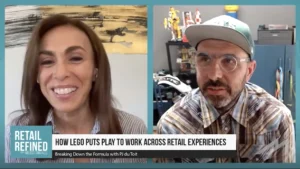Why Cryptocurrency’s Security Concerns are Increasing Calls for Self-Regulation?
With the collapse of the FTX exchange and one of its founders, the concerns surrounding the regulation of cryptocurrency have overtaken talks about its security. Currently, cryptocurrency is “regulated,” but the lack of uniformity in its regulation has left much to be desired about its safety, particularly for consumers. But self-regulation may be a solution to the future of regulating cryptocurrency.
What is self-regulation? And how would it work in a world with enforced regulation?
Crypto expert Gabby Kusz, CEO of Global Digital Asset and Cryptocurrency Association, elaborated on the regulation concerns of cryptocurrency with host Christine Russo in the latest edition of “What Just Happened?” The two further explored the concept of self-regulation and what it can mean for consumers, along with the safety measures it can introduce to the world of cryptocurrency exchanges.
FTX’s crash sent the crypto world into a tailspin when its founder defrauded investors and consumers out of billions of dollars. Re-emerging from the whole debacle were new calls for regulation, and the growing interest in self-regulation — a concept that could temporarily (or permanently) and potentially address cryptocurrency security, until a foolproof regulation is implemented.
“With self-regulation, it’s not in place of, or as a substitute for — it’s a complement to that. Neither the industry or regulators or government are really able to do this on their own right now, and we can try to wait for 10 or 15 years until people build capacity, laws change, institutions are fully formed, or we can recognize that there’s really a need today to start to take action …” said Kusz.
Russo and Kusz also further talked about the …
- Outlook on the growing sense of urgency for self-regulation and the responsibility for doing so
- Failure of FTX and how it crashed
- Measures companies can take to ensure they reach all aspects of consumer needs in regulating
“If your end goal is to have products and services that are made for everyone and raise everyone up, then you have to begin with a framework that has that intentionally built in and that allows firms that are more diverse, better, more resilient, more globally competitive to thrive, and then ultimately consumers, the general public, the economy, and society win,” said Kusz.
Gabby Kusz is the CEO of Global Digital Asset and Cryptocurrency Association. She has over 17 years of financial industry experience. Kusz is also a Leader on the Chicago Council on Global Affairs and a Network Leader for Prince Sultan University. She is an alumna of Georgetown University.








